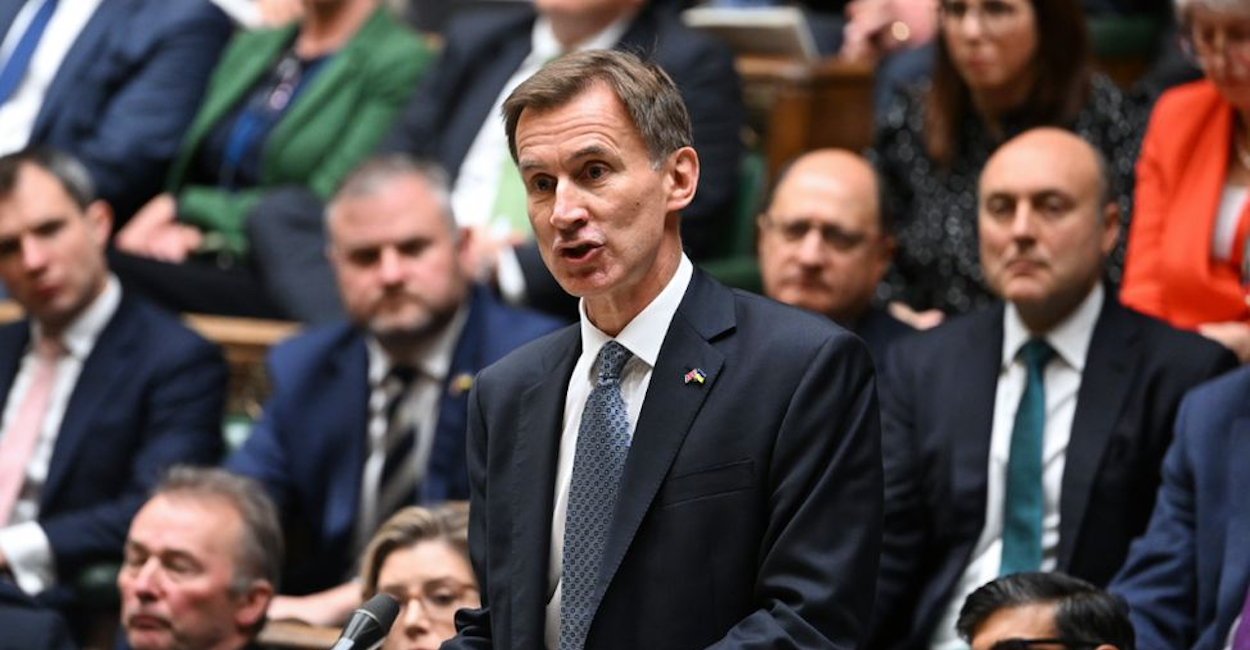By Catherine McBride – 3 minute read
THERE ARE lots of points in the Chancellor’s Autumn Statement that need to be addressed, but this one requires serious debate: why does the chancellor regard returns on capital as ‘unearned income’? This seems to be a very strange British sentiment from the dark ages of pre-Thatcher Britain.
Should we expect exchange controls next?
A business needs both capital and labour to exist, but the providers of the labour get a tax allowance, while the providers of the capital will soon get next to nothing. Investment in any business is a risk, but this kind of risk needs to be encouraged as it is these investment risks that build the economy.
The Chancellor states he is ‘reforming allowances on unearned income.’ And then tells us that the tax-free allowance on dividends will be cut from £2,000 to £1,000 next year – and then to £500 from April 2024. Even worse, he goes on to state the Annual Exempt Amount for capital gains tax will be cut from £12,300 to £6,000 next year – and then to £3,000 from April 2024. And somehow this is acceptable because the paltry allowances that we will be left with are more generous than Germany, Ireland, France, and Canada.
This is similar to the old justification ‘eat your dinner because children are starving in Africa’ used by parents in the 1960s. Most children saw though it then as quickly as most prudent savers and investors will see through the Chancellor’s speech now.
Besides the obvious cherry picking – I am sure most people would happily live with Ireland’s capital gains tax (33%) if their equity investments also benefited from Ireland’s exceptionally low corporate tax rates (12.5%) and myriad of very generous expense deductions.
There is also the obvious problem that neither of the four countries would be considered shining examples of new listings in innovative companies, new technology, or venture capital. I wouldn’t mind having Germany’s ability to revert to coal power on a hairpin to help their industries survive or France’s considerable investment in nuclear power, but I have never wanted to emulate either country’s taxes. Taxes are their worse feature.
As for Canada, if you google Canada and Tax one of the first things that comes up is ‘Move to Canada and lower your taxes’ apparently small businesses in Canada only pay 10% tax and Canada has a special visa program to encourage Small and Medium sized Enterprises (SMEs) to move there. So why are we emulating Canada’s capital gains tax (which is charged at the marginal tax rate but on only 50% of your realised gain) but not its really smart low SME tax rate and visa program to attract new businesses?
Or what about Canada’s lower income tax? Their highest tax rate is 33% on earning over C$216,511 (£137,126). The UK’s highest tax rate is now 45% on earnings over £125,000.
Well, it looks like our government thinks running a company is easy, and that owner operators should pay themselves a wage, regardless of the company’s profitability, rather than pay themselves from dividends if the business makes a profit, profits that will soon be taxed at 25%. After which dividends are presently taxed at 8.5%, 33.75% or 39.35% for Basic, Higher and Additional rate taxpayers.
As for the prudent investors and savers that supply businesses with capital – well the message from the treasury is clear – they should just spend their money on consumer goods and stop being so parsimonious.
What is the point of having an ex-entrepreneur as a Chancellor if he truly thinks dividends and capital gains are unearned?
If you If you appreciated this article please share and follow us on Twitter here – and like and comment on facebook here. Help support Global Britain publishing these articles by making a donation here.
Catherine McBride is an economist who writes about trade and agriculture. She is on the Government’s Trade and Agriculture Commission and is a fellow of the Centre for Brexit Policy.

